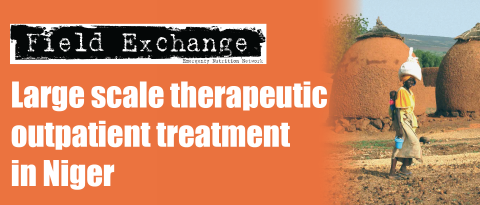Market-based contracts protect against price rises in Malawi alliance initiative
Summary of research1

Getting water in the drought affected landscape in Malawi
Commodity options contracts are typically used to hedge against price volatility. They operate in a similar way to insurance. Payment of a premium is exchanged for the right, but not the obligation, to either buy or sell a commodity at a predetermined price for a particular period of time into the future. The premium cost is determined by the difference between the current market price and the price protected, the length of time that the price protection is needed and the volatility of the market. There are two types of options contracts. 'Put' options are options to sell at a specified price in the future, and are typically used by producers or exporters to protect against falling prices. 'Call' options are options to buy at a specified price in the future and are typically used by importers to protect against rising prices. According to a recent article in Humanitarian Exchange, when combined with a physical delivery contract, options contracts can help importers manage costs, and mitigate the risk that prices will increase dramatically when there is a shortage in the market.
In September 2005, the Malawian government signed an options contract with Standard Bank of South Africa. The contract allowed for the purchase of a maximum of 60,000 tonnes of maize at a cost of approximately $18m - enough to meet the food gap if donor and private sector commercial imports did not reach anticipated levels. The Department for International Development-UK (DFID) provided the finance to pay the options premium up front and the World Bank provided technical support. The options contract provided the government with a mechanism to trigger additional imports at short notice, put a price cap on the cost of maize from South Africa and provided protection against the risk that prices would move higher. Agreeing an 'over the counter' contract meant that the cost, included delivery to Malawi, reduced uncertainty over transport prices.
In response to continued evidence of shortages in the market and concern about rising local prices, the government exercised the first tranche of the options contract on 7th of October, buying 30,000 tonnes of maize. It exercised the second tranche on 15th of November, when it bought the remaining 30,000 tonnes.
Malawi's early experience with options contracts was largely positive. The majority of the purchased maize was used to meet humanitarian needs and did not reach the commercial market. The maize helped to avoid severe shortfalls in the humanitarian pipeline. Additionally, by the time of delivery in December 2005/January 2006, prices had risen by between $50-$90 a tonne above the ceiling price of the contract while transport costs had also increased.
One of the key challenges that the private sector faces in Malawi is uncertainty about when the government will intervene in the maize market. To address this problem, the options agreement was made public via a government press release. Private sector traders in Malawi and in the region are supportive of this approach, and look forward to an opportunity to be involved commercially.
In the future, the government (or donors) could resell maize purchased through the options contract to local traders, who would then manage distribution and commercial sales. In this way, the government or donor role is limited to risk management (a critical need in Malawi, where local traders capacity to manage imports is weak). Over time, and as the capacity of local traders and the commercial market strengthens, this risk management function would naturally fall back to the private sector.
Implications for humanitarian agencies
Options contracts have the potential to enable a proactive, risk-management approach to the procurement of food by humanitarian agencies. They offer potential cost savings by allowing agencies to buy protection at lower market prices when these are available. They potentially speed up response mechanisms since triggering prearranged option contracts can be quicker than tendering for supply contracts. Local and regional trade are also supported through options contracts.
Enabling agencies, like the World Food Programme, to work with option contracts will, however, require some significant transformations in the way that funds are accessed and budgets managed. These contracts require longterm procurement plans if they are to be costeffective. For those agencies that have significant core funding, this may not be a problem. However, where the procurement of food depends on contributions by donors to emergency appeals, the opportunities to agree at an early stage what food requirements will be in the future, and to ensure an early response, have been limited. Option contracts are a solution to this problem since they allow for contingent import contracting. As an example, donor agencies can begin purchasing options contracts at the first sign of a problem, then exercise or 'call' for deliveries only if needs become apparent.
Budgeting process within agencies may also have implications for the use of option contracts. In many agencies, significantly less money is budgeted for disaster preparedness and prevention than is allocated to disaster response. Spending money on options contracts may mean that there is less money to spend later on emergency aid, if the option does not enable a crisis to be averted. Most importantly, humanitarian agencies receive much less credit for their roles in preventing emergencies than they do for responding effectively when an emergency arises.
1Slater R and Dana J (2006). Tackling vulnerability to hunger in Malawi through market-based options contracts: implications for humanitarian agencies. Humanitarian Exchange, no 33, pp 13-17, March 2006
Imported from FEX website


